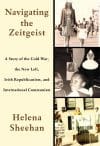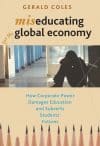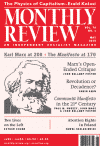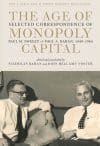Media

Why would an American girl-child, born into a good, Irish-Catholic family in the thick of the McCarthy era—a girl who, when she came of age, entered a convent—morph into an atheist, feminist, and Marxist? The answer is in Helena Sheehan’s fascinating account of her journey from her 1940s and 1950s beginnings, into the turbulent 1960s, when the Vietnam War, black power, and women’s liberation rocked her bedrock assumptions and prompted a volley of life-upending questions—questions shared by millions of young people of her generation. But, for Helena Sheehan, the increasingly radicalized answers deepened through the following decades. | more…

The circumstances that impelled Victor Grossman, a U.S. Army draftee stationed in Europe, to flee a military prison sentence were the icy pressures of the McCarthy Era. Grossman—a.k.a. Steve Wechsler, a committed leftist since his years at Harvard and, briefly, as a factory worker—left his barracks in Bavaria one August day in 1952, and, in a panic, swam across the Danube River from the Austrian U.S. Zone to the Soviet Zone. Fate—i.e., the Soviets—landed him in East Germany, officially the German Democratic Republic. There he remained, observer and participant, husband and father, as he watched the rise and successes, the travails, and the eventual demise of the GDR socialist experiment. | more…

An original poem by award-winning writer Wilderness Sarchild. | more…

In his review of Hardboiled Activist: The Work and Politics of Dashiell Hammett by Ken Fuller, Albert Ruben debunks popular arguments about Hammett’s consistent radicalism. Instead, he highlights Fuller’s research to point to Hammett’s process of radicalization—from nihilism to communism—and the events that shaped his life and work. | more…

Millions of Americans face increasing difficulty finding well paying, secure jobs. But the current employment crisis is not so much due to the educational system as it is to a sustained corporate effort to keep the public in ignorance about the damage wrought by the global economy itself. Miseducating for the Global Economy reveals that behind the going concern for “global economy education” lies capitalism’s metastasizing indifference to human values, to a fair distribution of resources, to its radical restructuring of workplaces with an attendant intensification of work effort, and to the genuine well-being of workers and their families. | more…

The neoliberal restructuring of U.S. higher education is widely recognized, but nonetheless treated superficially and piecemeal in most left analyses, with little critical understanding of its inner political-economic logic. It is here that American observers have the most to learn from their British counterparts. | more…

Jane Lazare has written a fascinating, intensely personal book about history, family, and the Communist Party in the United States. She knows this story well: her father was an active Communist organizer, and the memoir recounts his life and hers, and the connections between them. | more…

In Manufacturing Consent (1988), Noam Chomsky and I put forward a “propaganda model” as a framework for understanding how and why the mainstream U.S. media operate within restricted assumptions, depend uncritically on elite sources, and participate in propaganda campaigns helpful to elite interests. In this article I describe the model, address some of the criticism leveled against it, and discuss how it holds up today. | more…

Forthcoming in November 2018
This is the first volume of the autobiography of Samir Amin, who, born in Cairo in 1931, became a world-renowned Marxist economist, intellectual, and revolutionary. | more…

Stephanie J. Urdang was born in Cape Town, South Africa, into a white, Jewish family staunchly opposed to the apartheid regime. In 1967, at the age of twenty-three, no longer able to tolerate the grotesque iniquities and oppression of apartheid, she chose exile and emigrated to the United States. There she embraced feminism, met anti-apartheid and solidarity movement activists, and encountered a particularly American brand of racial injustice. Urdang also met African revolutionaries such as Amilcar Cabral, who would influence her return to Africa and her subsequent journalism. In 1974, she trekked through the liberated zones of Guinea-Bissau during its war of independence; in the 1980’s, she returned repeatedly to Mozambique and saw how South Africa was fomenting a civil war aimed to destroy the newly independent country. From the vantage point of her activism in the United States, and from her travels in Africa, Urdang tracked and wrote about the slow, inexorable demise of apartheid that led to South Africa’s first democratic elections, when she could finally return home. | more…

Despite its grip on the scientific culture of affluent societies, the reign of the gene as the supposed “secret of life” is coming to an end. The more we learn about natural systems the clearer it becomes that genes are only one class of factors influencing phenotypic development and evolution. | more…

Paul A. Baran and Paul M. Sweezy were two of the leading Marxist economists of the twentieth century. Their seminal work, Monopoly Capital: An Essay on the American Economic and Social Order, published in 1966, two years after Baran’s death, was in many respects the culmination of fifteen years of correspondence between the two, from 1949 to 1964. During those years, Baran, a professor of economics at Stanford, and Sweezy, a former professor of economics at Harvard, then co-editing Monthly Review in New York City, were separated by three thousand miles. Their intellectual collaboration required that they write letters to one another frequently and, in the years closer to 1964, almost daily. Their surviving correspondence consists of some one thousand letters. | more…











